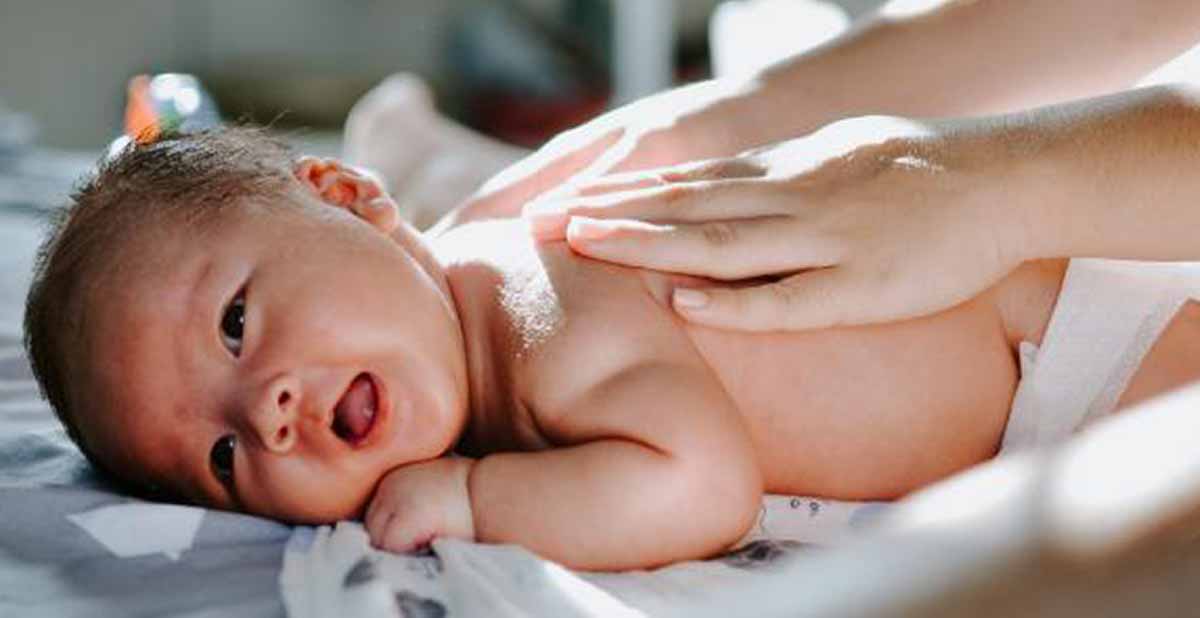RESEARCH NEWS
Published: Wednesday, August 21, 2019 – 5:47pm
760 Melbourne newborn babies are needed for a trial to test if it is possible to prevent the risk of developing childhood eczema and food allergies by applying a barrier skin cream, which researchers hope will stop allergic irritants penetrating infant skin.
The trial, being led by the University of Melbourne, the Murdoch Children’s Research Institute and major Melbourne hospital partners, needs babies aged three weeks or younger whose parents or siblings suffer from either eczema, asthma or food allergies.
Lead researcher, Associate Professor Adrian Lowe from the University of Melbourne, said young babies have a relatively poor skin barrier, and research has found children with the poorest skin barrier are at increased risk of developing eczema and food allergies.
“Researchers now believe allergens are penetrating infant skin and increasing the risk of developing an allergic condition like eczema, food allergies and asthma,” Associate Professor Lowe said.
“Sometimes this theory is called ‘leaky skin’. A range of factors, both genetic and environmental, can lead to skin barrier damage. When allergens enter through the skin, the result is then sensitization and subsequent allergic disease.”
Associate Professor Lowe said it was well established that kids who develop eczema are at increased risk of developing food allergy and asthma.
“The promising results in the second phase of the trial were published in the British Journal of Dermatology.
“This is one of the largest studies to test if a barrier cream can prevent the development of eczema and food allergy and is based in Melbourne where there are very high rates of allergy,” he said.
“The cream being used, EpiCeram™, contains the major building blocks of skin. We hope that it will build the infant’s skin barrier and prevent allergens penetrating their skin to cause sensitization. If this works, it may prevent children from developing eczema and food allergy, and possibly other allergic conditions like asthma.”
Associate Professor Lowe said this is the third phase of his team’s research. “In the first phase we tested the safety of EpiCeram™ and no adverse reactions occurred. In our second phase, 80 babies were recruited, and our intervention showed a very promising reduction in the rate of not only eczema but also sensitization to food allergens, a marker of food allergy.
Co-investigator Professor Mimi Tang from the Murdoch Children’s Research Institute said Australia’s rates of childhood allergies were among the highest in the world and she is excited to be working on a preventative treatment for children.
“Beyond early introduction of allergenic foods (like peanut) into the infant’s diet, there are currently no effective strategies to prevent infants developing allergic diseases,” she said.
“Applying barrier creams to children from birth is an exciting and promising area of research for prevention of allergies. We hope this study will validate that approach.”
The MCRI/UoM HealthNuts study of one-year old children found that one in every 10 had an allergy to a food; about one in three children from Melbourne will develop eczema; while one in five children will develop asthma.
To join the study or find out more information visit mspgh.unimelb.edu.au/centres-institutes/centre-for-epidemiology-and-biostatistics/engage/pebbles Tel: 1800 875 127
Babies eligible for the trial must be less than three weeks of age and come from families with a history of either asthma, eczema or food allergies.
The study is funded by the National Health and Medical Research Council. Study partners include; The Murdoch Children’s Research Institute, The Royal Children’s Hospital, The Royal Women’s Hospital, Frances Perry House and The Mercy Hospital for Women.
Media enquiries:
Rebecca Scott | 0417 164 791 | rebeccas@unimelb.edu.au
Christine Tondorf |0413 307 092| christine.tondorf@mcri.edu.au





